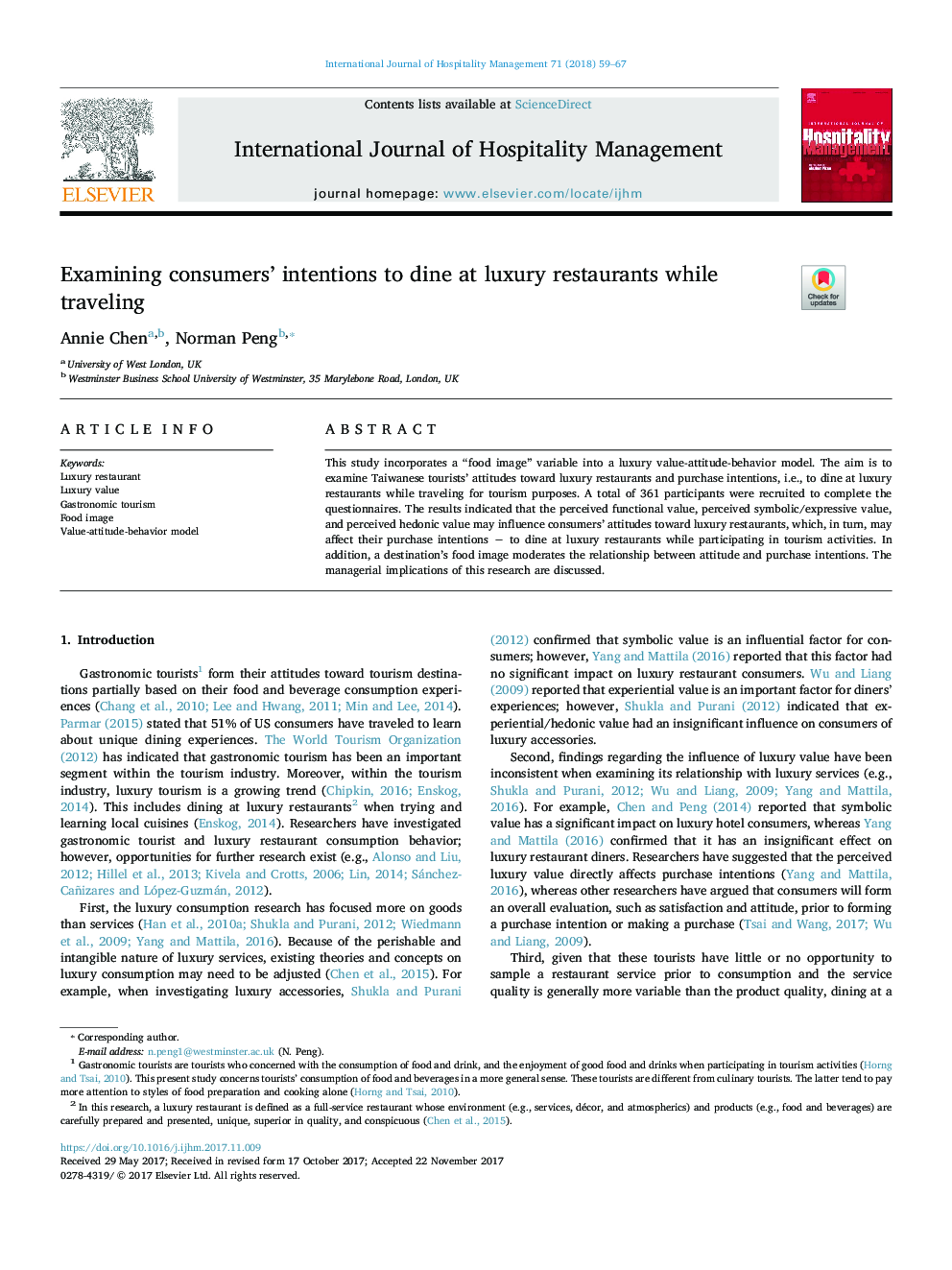| Article ID | Journal | Published Year | Pages | File Type |
|---|---|---|---|---|
| 7419063 | International Journal of Hospitality Management | 2018 | 9 Pages |
Abstract
This study incorporates a “food image” variable into a luxury value-attitude-behavior model. The aim is to examine Taiwanese tourists' attitudes toward luxury restaurants and purchase intentions, i.e., to dine at luxury restaurants while traveling for tourism purposes. A total of 361 participants were recruited to complete the questionnaires. The results indicated that the perceived functional value, perceived symbolic/expressive value, and perceived hedonic value may influence consumers' attitudes toward luxury restaurants, which, in turn, may affect their purchase intentions â to dine at luxury restaurants while participating in tourism activities. In addition, a destination's food image moderates the relationship between attitude and purchase intentions. The managerial implications of this research are discussed.
Keywords
Related Topics
Social Sciences and Humanities
Business, Management and Accounting
Strategy and Management
Authors
Annie Chen, Norman Peng,
